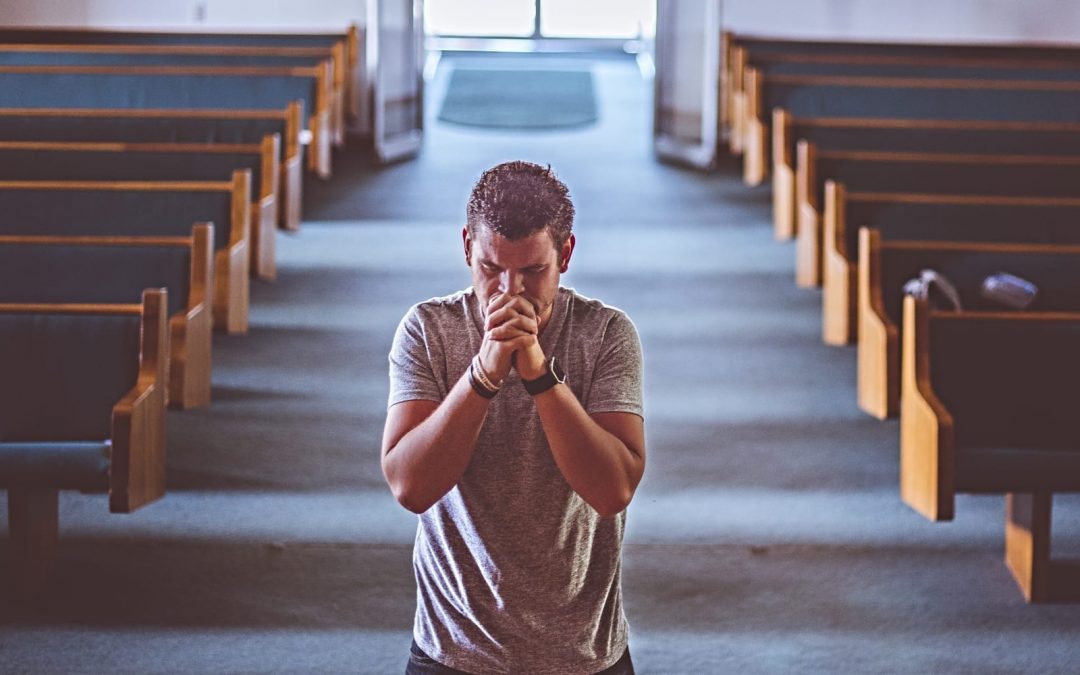I listened to a friend recently as he described the challenge his church had faced as they navigated a difficult congregational decision.
It was no surprise to hear him talk about people taking sides, expressing opinions, twisting facts, assigning motives to the opposition and generally imitating our culture’s standards of behavior.
Sadly, that is the norm for most leaders in congregations who attempt to engage in thoughtful conversations about difficult topics.
This congregation emerged from the painful path of making their decision bloodied and battered, smaller, but intact.
Since that time, healing has begun, and they are now moving forward and giving their attention to the future God has in store for them.
It was his comment about the process that caught my attention. “No one really seems to change his or her mind anymore, you know?” That resonates.
As a pastor, I quickly learned that most of those I pastored had concretized their opinions and attitudes rather early in their adult lives.
One of the hardest shifts in moving from being a youth minister to serving as a pastor was that I no longer spent the majority of my time with adolescents who were still young enough to be open to teaching, new ideas and contrarian thinking, and who had a genuine interest in growth as a disciple.
When I became a pastor, I had to put away such childish things. Most of the adults I worked with had their minds made up about a multitude of things and were not really interested in changing them.
Once someone abandons their openness to learning, it usually takes a “Damascus Road experience” to break through their dogmatism.
It was certainly true for many of the adults Jesus met and invited into an experience of life transformation.
It was often at a time of crisis when people changed their mind and embraced the narrow way that Jesus was offering: being struck blind, losing a child, being shunned by a community, suffering from an incurable illness, threatened with torture and death and so on.
As a minister, I’ve watched for 40 years as the same phenomena plays out. Most of us only change our minds in the face of intense pain, loss or some type of crisis.
Our rigid opinions and convictions crumple in the face of an experience that shocks us into a new way of thinking.
Chest pains, marital discord, prodigal children, getting fired or laid off, a bad biopsy result, a near-fatal accident – all have the effect of breaking through our illusion of immortality or always being right, and we open ourselves to the richness of changing our minds about ourselves, someone else or something.
How about congregations and faith communities? Can we change our minds? Does it always take a crisis for this to happen?
Is there a healthier, less painful path toward an open mind? I certainly hope so. Crisis is a cruel teacher.
Some of us don’t survive the illness or the accident or the marital discord or the depression that failures bring. Our opportunity to learn new things is lost. There must be a better way.
I remain hope-filled for churches who are willing to learn and change their minds. I pray we can do so without a paralyzing or devastating crisis.
Here’s what I have seen that must happen for us to come to that point:
- We must cultivate humility.
Much of our resistance to changing our minds about people, topics or issues is rooted in an unhealthy pride virus that infects us.
Reinhold Niebuhr had it right: Our pride is at the heart of our resistance and rebellion against God’s desires and dreams for us.
Congregations comprised of individuals who learn to confess their own sins, rather than the sins of others, are most likely to be those who are open to God’s unfolding revelation of truth.
- We must more fully experience church as mission, rather than temple.
One part of the genius of Jesus’ leadership of his early followers was to replace their fixation upon a place with their devotion to a movement.
While he certainly spent his fair share of time in and around the temple, Jesus was much more engaged with, and animated by, the individuals and the needs in the communities he encountered.
It dumbfounded the religious authorities of his day, as it does ours.
Our insistence in the U.S. that church is a location rather than a way of life is perhaps the saddest missteps we have made. Thriving churches reverse this travesty and reprioritize appropriately.
- We must adopt the posture of a disciple, rather than a master.
Disciples are open to the teachings and insights of others because they have recognized their own limitations and blind spots.
When we begin to think we know all there is to know about a type of person, an issue, a theological point, a matter of church practice or any point of contention, we have moved from the humble posture of a disciple to the proud posture of a master. Beware.
What would it look like if we were to become people who are genuinely open to the idea of changing our minds to align more nearly with Christ?
I believe we might become more of the church Jesus intended us to be when he sent us out on our mission. We might actually turn this world upside down.
Editor’s note: A version of this article first appeared on the Center for Healthy Churches blog. It is used with permission. You can follow Wilson on Twitter @BillWilson1028 and the Center @ChurchHealthy.
Bill Wilson is president of the Center for Healthy Churches (CHC) housed at Belmont University in Nashville, Tennessee.


